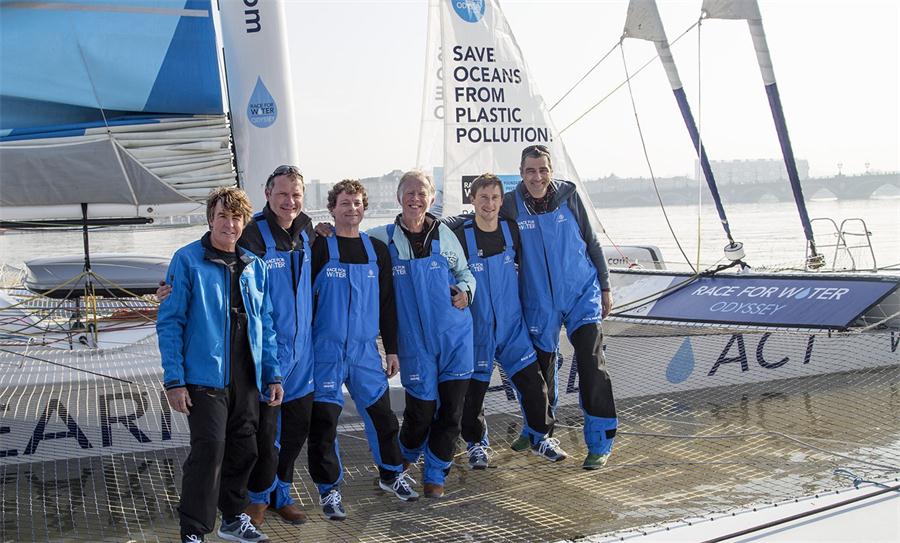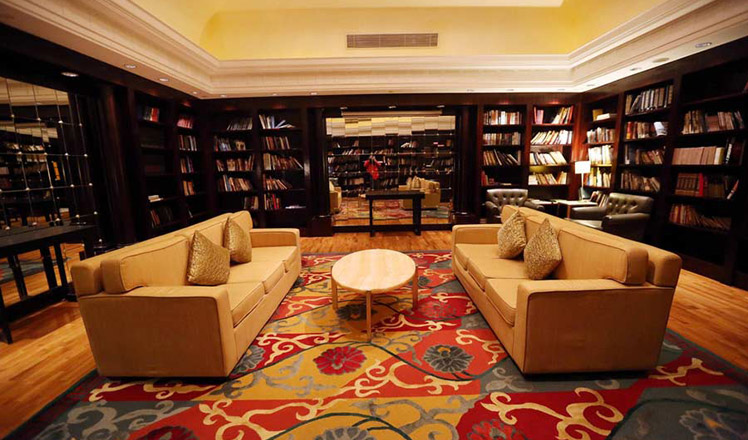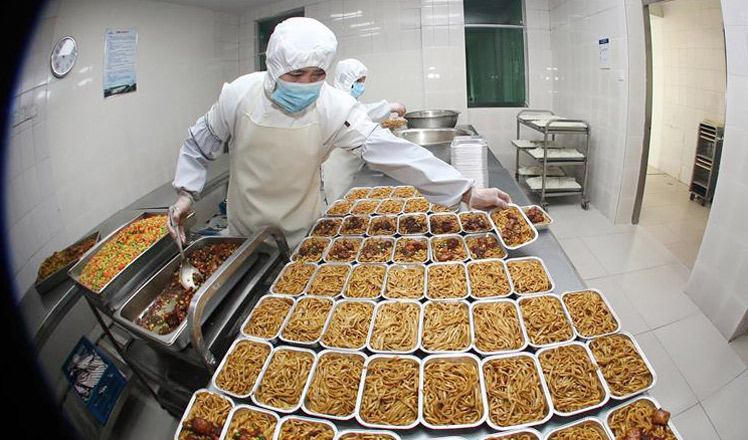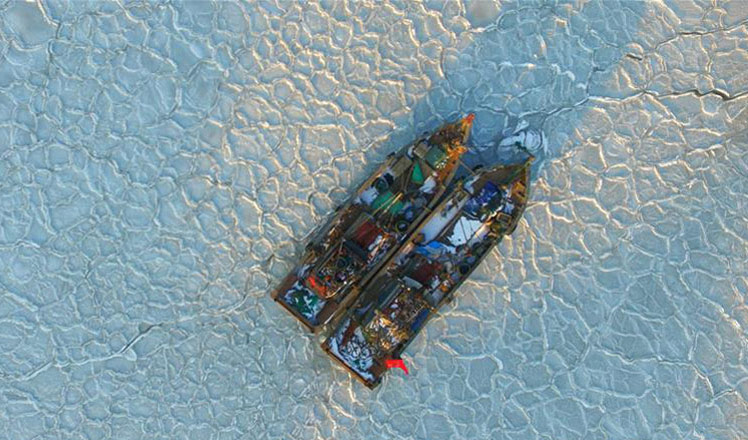Six ocean guardians' global odyssey
Updated: 2016-01-28 15:14
By Song Jingyi(chinadaily.com.cn)
|
||||||||
 |
|
Marco Simeoni (second left) is the president of the foundation, the initiator of the project and the expedition leader. The team is made up by Stève Ravussin (left), a Swiss navigator, co-skipper Claude Thelier (middle),Olivier Rouvillois (middle),Martin Gaveriaux (second right) and media crew Peter Charaf (right). [Photo provided by Race For Water Foundation to chinadaily.com.cn] |
Q: Could you tell me more about how you balance scientific investigations and daily life?
A: The catamaran is only 21 meters long and has only one small cabin with two beds and a cooking corner. There is no heating, no shower and no toilet. Because we have five to six people on board, so we have to take sleeping shifts of two hours and stay three hours awake. But if there are storms or a typhoons like on the leg from Hawaii to Yokohama, nobody is able to sleep at all.
Q: During the voyage, what have impressed you the most?
A: Two things left the deepest impressions on me. The first one was when our ship capsized in the Indian Ocean. As we were navigating by night with 18 to 20 knots of wind, a strong gust of wind turned the boat over. Fortunately, the crew was safe and unhurt inside the upturned main hull. Our shore team worked immediately on solutions to recuperate both crew and yacht. The personnel at the military base in Diego Garcia, less than 100 miles away, also agreed to assist the team. The crew was also really shocked to see how much trash there was to see on every island we visited, from the most famous ones (such as Easter Island) to the most remote one. Here is an example of a very remote island on which we went. Nobody lives on this island, but so much trash lost in the ocean.
Not the end, but a new beginning
Q: Do you think there will be another race?
A: The plan is that we will keep going. Differently, since 2015 is the first step. The second step will be more about action. There will be other missions. I'm not sure if we can call them races yet, because we are not sure what is going to happen.
In 2016, we have launched the Pilot Project which is going to transform marine plastic waste in electricity. The idea is to implement the first pilot project in Rio, during the Olympic Games. We will know very soon if we can confirm that we can go there with our new ambassador boat, the race for water solar vessel.
Q: Will next year's plan include China?
A: We won't be coming back to China in 2016, unfortunately. However, our objective is to duplicate our project and its positive effects as soon as we can, so maybe in the following years, we will come back to China with innovative technology.
- A glimpse of Spring Rush: little migrant birds on the way home
- Policy puts focus on genuine artistic students
- Police unravel market where babies are bought, sold as commodities
- More older pregnant women expected
- Netizen backlash 'ugly' Spring Festival Gala mascot
- China builds Mongolian language corpus
- Goodwill sets tone at Wang, Kerry's briefing
- Obama picks new Afghan commander
- Ceremony held in Auschwitz Camp to remember the Holocaust
- Thousands of beckoning cat on display in Japan's Goutoku Temple
- Chinese fishing boat capsizes off S. Korean island: Yonhap
- 42 cases of Zika infection reported in N.E. Panama

 Top 10 best selling cars on Chinese mainland 2015
Top 10 best selling cars on Chinese mainland 2015
 Warm memories in the cold winter
Warm memories in the cold winter
 The world's highest library
The world's highest library
 In-flight meal prepared for travel rush ahead of Spring Festival
In-flight meal prepared for travel rush ahead of Spring Festival
 72-year-old teaches yoga for free in Hangzhou
72-year-old teaches yoga for free in Hangzhou
 Sea ice traps boats as cold wave sweeps across East China
Sea ice traps boats as cold wave sweeps across East China
 10 tourists grab free money in one minute in East China
10 tourists grab free money in one minute in East China
 Warm colors at sunrise cast off the chill in Qingdao
Warm colors at sunrise cast off the chill in Qingdao
Most Viewed
Editor's Picks

|

|

|

|

|

|
Today's Top News
National Art Museum showing 400 puppets in new exhibition
Finest Chinese porcelains expected to fetch over $28 million
Monkey portraits by Chinese ink painting masters
Beijing's movie fans in for new experience
Obama to deliver final State of the Union speech
Shooting rampage at US social services agency leaves 14 dead
Chinese bargain hunters are changing the retail game
Chinese president arrives in Turkey for G20 summit
US Weekly

|

|







